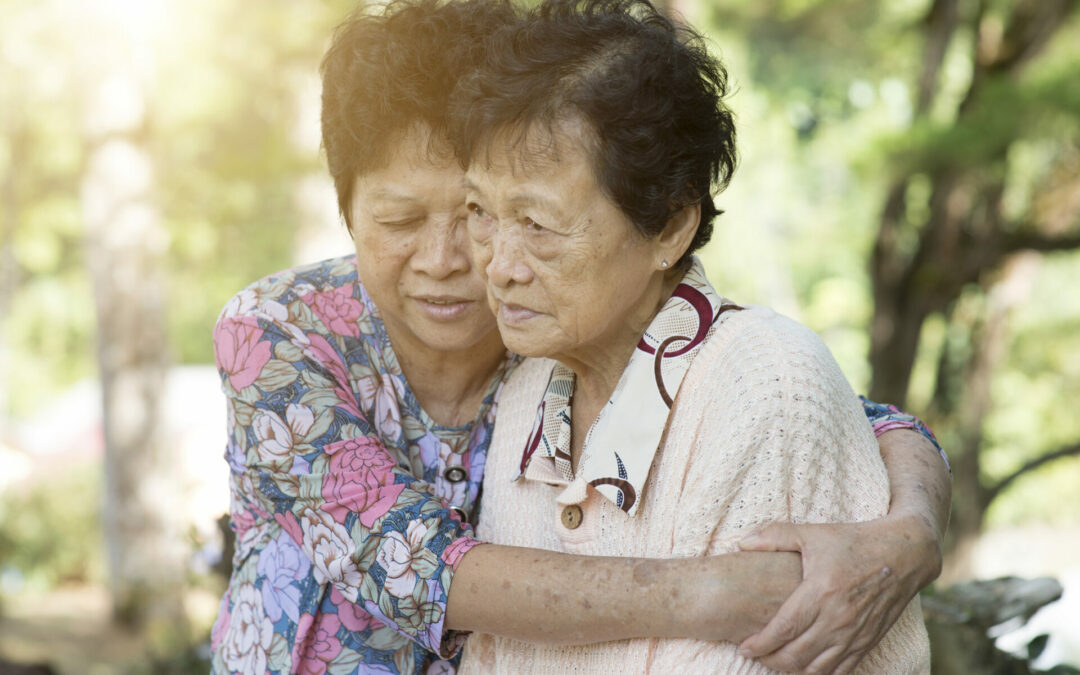Contents
Elderly Mood Swings Need Understanding
Elderly mood swings are sometimes misunderstood. Seniors aren’t always acting out when they switch attitudes at random. As we get older our emotional states turn unpredictable. It even becomes hard to figure out which changes are normal and serious. So such things need attention since it occurs to everyone.
For our loved ones and even ourselves, it pays to know what causes these and what to do about them. We will turn old someday and our retirees may need help to manage the aging process. This article has information on the nature of and how to manage mood swings. Equipped with this knowledge, you will be able to support better your beloved seniors. It may even let you avoid getting overwhelmed with stress. Thus, it is worth your while.
Causes Of Elderly Mood Swings
Elderly in bad mood states occur due to a variety of reasons. Internal and external factors often determine why an old person shifts his or her moods. Usually, the changes are unintentional. Chemical alterations within the body and life circumstances affect one’s state of mind. But, even if these may be quite troublesome sometimes, there is no reason to feel discouraged. After all, there are strategies how to manage mood swings.

One of the best techniques is to find out the root of the problem. Something must have happened. If you’ve noticed that your elders keep shifting their attitudes often, take action. Have a look at their behaviors, responses, and personality, and help them manage. So it pays to be analytical when assessing seniors.
Hormonal Changes
A possible reason why you can catch the elderly in bad mood conditions is their hormones. They are chemical messengers within the body and are responsible for many things. Examples of these are dopamine, serotonin, endorphin, and oxytocin. They give people feelings of pleasure, help in focusing, and achieve stress relief. With them in lower or higher amounts, they can change how an individual behaves. Even the hormones testosterone, estrogen, and progesterone affect a woman’s behavior during menopause. So they have a big impact on people’s moods.
What also affects old people’s hormone levels are their nutrition and lifestyle. This means that what they eat and don’t consume influences the chemicals in their system. Drug intake or insufficiency even contributes to this too. Also, daily activities such as work, exercise, and sleep contribute to the changes too. Their availability and deprivation alter the hormones. Thus, caregivers need to see what seniors do daily to find out if there are changes to any of these things.
Specific Life Events
The ones that elicit strong emotions are often those that cause elderly mood swings. Samples of these are intense feelings from trauma, grief, and anger. In some cases, old people may not be able to cope well when certain things happen in their lives. When challenges occur, sometimes, people cannot see things for what they are. They may not even judge situations as well as they should. Thus events may cause shifts in emotions and result in handling regular tasks.
It’s normal to find an elderly in bad mood conditions from time to time. What isn’t typical is to see them have emotional shifts over and over again. It’s because such changes affect how they live their lives. For this reason, physicians like psychiatrists and psychologists are available for help. It’s because they are experts on how to manage mood swings.
Pains
Sometimes, what causes elderly mood swings are unpleasant sensations. Those would be psychological and physical pains. Seniors may be lashing out with their emotional states. It may be due to the chronic inconveniences and discomfort they’re having. It’s possible in that way that they’re saying their feelings of neglect too. That would be through those temper outbursts. So it isn’t strange for some sick elders to have changing dispositions.
Besides, being in pain for so long causes so many troubles. It becomes difficult to concentrate on tasks and even sleep with painful sensations. Different kinds of pains may be signs of underlying medical conditions too. Thus, it is clear why it would make old people moody.
Mental Disorders
Mental illness can result in elderly mood swings. Frequent emotional outbursts may be evidence of mental health conditions too. Thus, it is important to be watchful of recurrent mood shifting. After all, such things may prove a psychological or behavioral problem.

Usually, doctors are the ones who diagnose elders as having specific mental illnesses. Yet some symptoms that are noticeable mood shifts may be suggestive of them. So it pays to be familiar with these changes.
Mental Health Issues That Cause Emotional Instability
- Bipolar Disorder. This involves shifts between high and low levels of moods, energy, and functionality. Has type 1 and 2, and involves episodes of mania and depression in varying degrees.
- Cyclothymic Disorder. This is rare and different from the types of bipolar disorder. With this, an elderly may have cycles of feeling somewhat upbeat and sad.
- Major Depressive Disorder. This condition involves the persistence of low moods and poor faith in oneself. It lasts for weeks. Also, there is a lack of interest and pleasure in activities and things. Those would be those that are usually meaningful or even enjoyable for the person.
- Alzheimer’s Disease. This is a progressive condition that affects elderly memory and functioning. That would be due to the brain cells and their connections with one another dying. Rapid mood shifts may happen with this disease. So a sufferer may have spontaneous crying and anger episodes.
Deal With Elderly Mood Swings
Elderly in bad mood episodes that recur means we should react. We must take positive measures so things won’t turn bad. Besides, there are many options on how to manage mood swings. Also, our senior loved ones are important to us. So it makes sense to take action as soon as possible.
Even if there is no stopping mood shifting sometimes, there are ways to control it. With the right knowledge, means to aid, patience, and persistence, it’s possible to help. Below are specific ways to handle the emotional instability of seniors.
Tips On How To Manage Mood Swings
- Discover the cause of these emotional instabilities.
- Make resources and yourself available for help.
- Improve diet, medications, lifestyle, and stress coping mechanisms.
- Address mental and physical health as soon as possible.
Other Techniques To Handle Moodiness
- Improve the sociability of seniors with depressive elderly mood swings. Invite them to join in activities and gatherings.
- Meet sudden aggressive outbursts with calmness and empathy. Show that you understand an old person’s fears, frustrations, and difficulties. Reassure that you are there to help.
- To handle anxiety and impulsiveness, be there to establish safety and discipline. Your presence prevents worries about abandonment and security. Being there allows you to stop unwanted behaviors too.
Reasons Why Elderly Mood Swings Can Be Problems
Rapid shifts in moods are normal from time to time only if they do not interfere with daily life to a great degree. Yet, when they do, they create all sorts of issues. For the most part, frequent and unexpected alterations in emotional states aren’t typical. These affect a person’s logical reasoning or judgment. Thus, it also changes how someone would interact with others and their surroundings. So doing something about these mood changes is reasonable.
Long-term emotional instability may result in a variety of health complications. Such random alterations in feelings could be signs of a disorder already. Often, serious illnesses need immediate treatment because they become worse when left untreated. In that way, we must not underestimate the elderly in bad mood states.
Common Emotional Instability Triggers In A Nutshell
- Diet
- Medications
- Lifestyle
- Stress
- Significant Life Changes
Benefits Of Managing Elderly Mood Swings
An elderly in bad mood times may disregard, show grumpiness, and be unkind to others. In this way, they are often challenging to connect with. Their fluctuating emotional states may make them feel anxious, irritable, and depressed. Also, there’s no telling when changes or outbursts of feelings occur. Yet, despite these, there are advantages to getting involved with and helping seniors.

Volunteering or being in a situation that requires aiding old-timers has its benefits. Helping seniors may provide health, relationship, and skill enhancement opportunities. That is for the caregivers and old-timers involved. It may take a while and effort to achieve success, but at least there are benefits to receive. Thus, it is a worthy pursuit.
When How To Manage Mood Swings Helps
- It deals with mental and physical health.
- Deals with issues of social isolation.
- Creates new, better, and quality relationships.
- Provides the desire to take action for the present and future.
While managing elderly emotions, caregivers connect with seniors. Retirees get the same satisfaction. Folks and old people get to do activities for their minds and bodies. Such also helps to avoid or act on loneliness. Aside from that, managing mood swings develop a bond or even a strong one between those involved. It rekindles old relationships between caregivers and seniors. It likewise builds new and excellent connections. So helping elders with their mood not only helps handle daily living. It gets people to share moments and find meaning together.
In Conclusion
Elderly mood swings are typical occurrences. Yet that doesn’t mean that tolerate everything about them. There are means to address these emotional instabilities. Also, dealing with them gives benefits to individuals and their elderly loved ones. So, if you know some old folks who are struggling with mood swings, don’t hesitate to help. With help available, it’s possible and even easy to manage these emotional fluctuations.
Have you had success dealing with mood swings in the elderly? Let us know through comments. Thanks for reading.
Read More:
Are Mood Swings In The Elderly A Sign Of Something More?
Overcome Loneliness In The Elderly
How To Care For Elderly Parents With Dementia
How To Deal With Elderly Parents In Denial
Does Food Effect Mood? Understand The Connection







